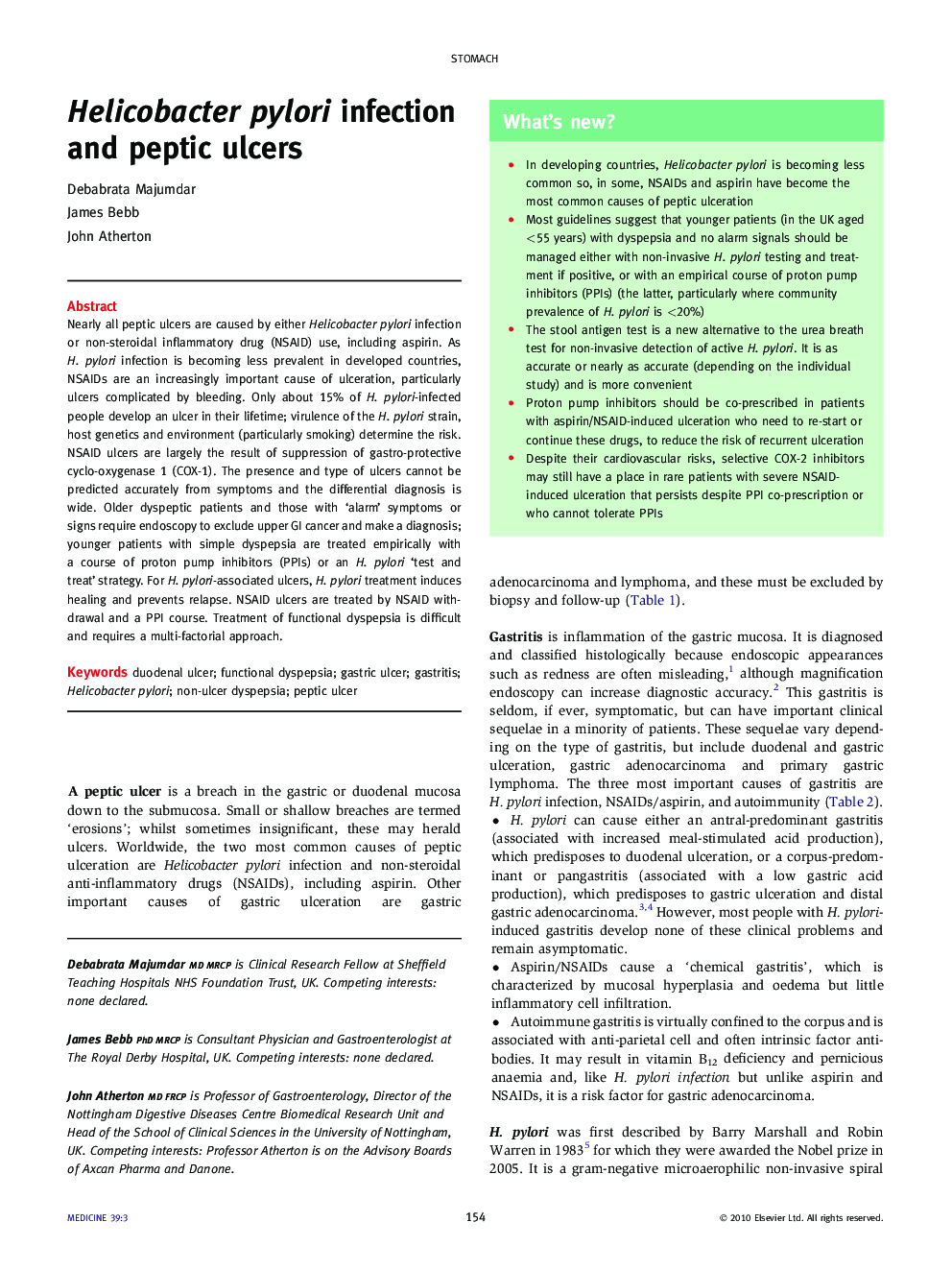| Article ID | Journal | Published Year | Pages | File Type |
|---|---|---|---|---|
| 3804206 | Medicine | 2011 | 8 Pages |
Nearly all peptic ulcers are caused by either Helicobacter pylori infection or non-steroidal inflammatory drug (NSAID) use, including aspirin. As H. pylori infection is becoming less prevalent in developed countries, NSAIDs are an increasingly important cause of ulceration, particularly ulcers complicated by bleeding. Only about 15% of H. pylori-infected people develop an ulcer in their lifetime; virulence of the H. pylori strain, host genetics and environment (particularly smoking) determine the risk. NSAID ulcers are largely the result of suppression of gastro-protective cyclo-oxygenase 1 (COX-1). The presence and type of ulcers cannot be predicted accurately from symptoms and the differential diagnosis is wide. Older dyspeptic patients and those with ‘alarm’ symptoms or signs require endoscopy to exclude upper GI cancer and make a diagnosis; younger patients with simple dyspepsia are treated empirically with a course of proton pump inhibitors (PPIs) or an H. pylori ‘test and treat’ strategy. For H. pylori-associated ulcers, H. pylori treatment induces healing and prevents relapse. NSAID ulcers are treated by NSAID withdrawal and a PPI course. Treatment of functional dyspepsia is difficult and requires a multi-factorial approach.
